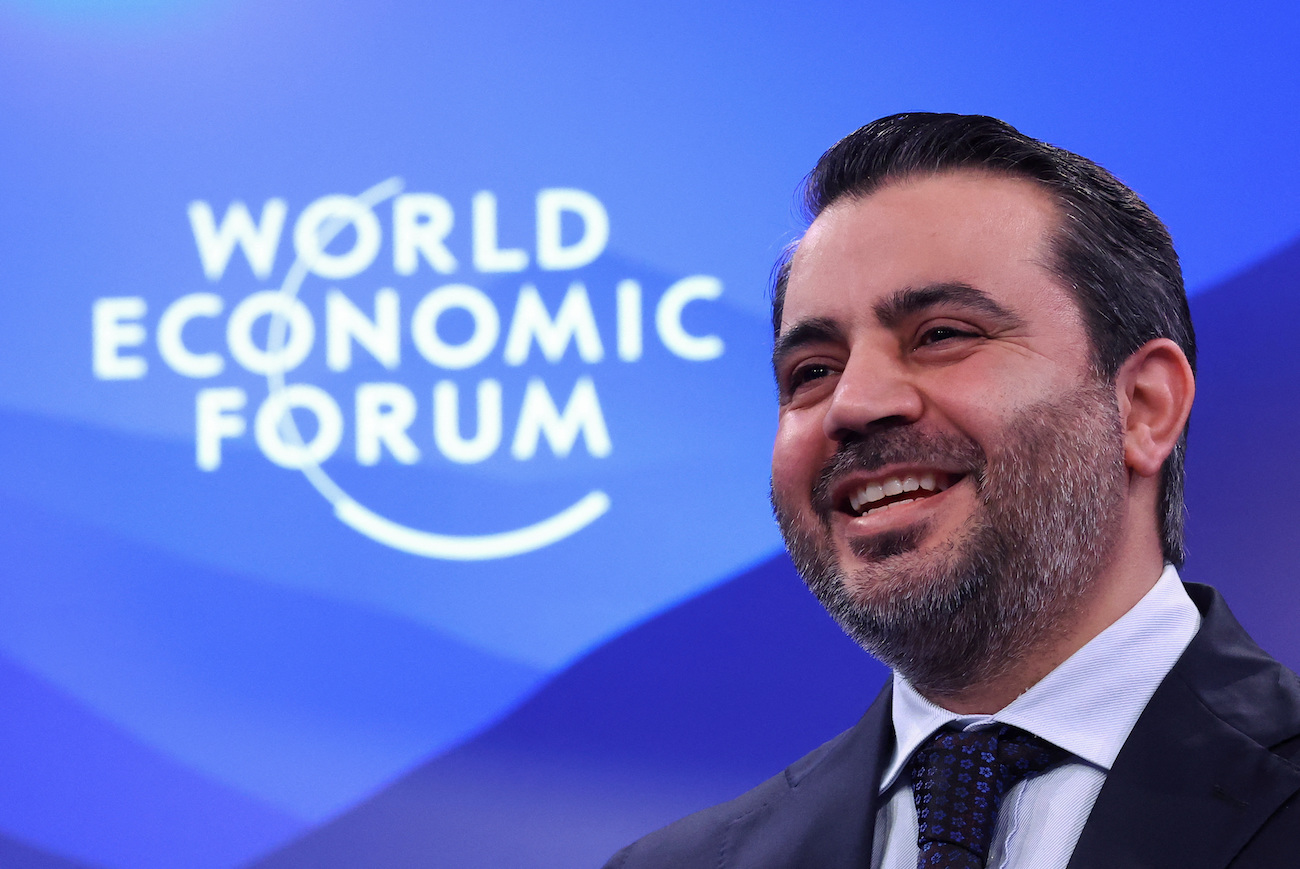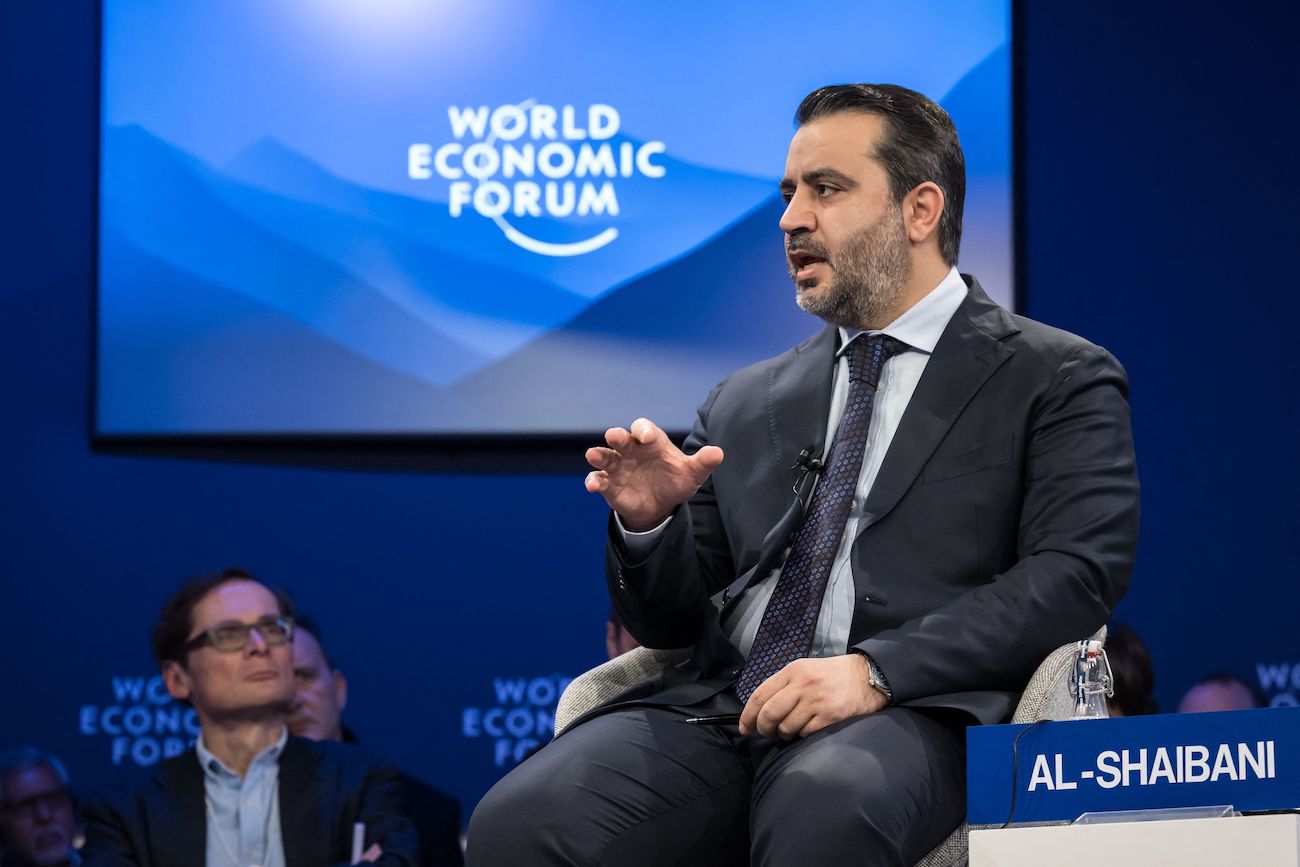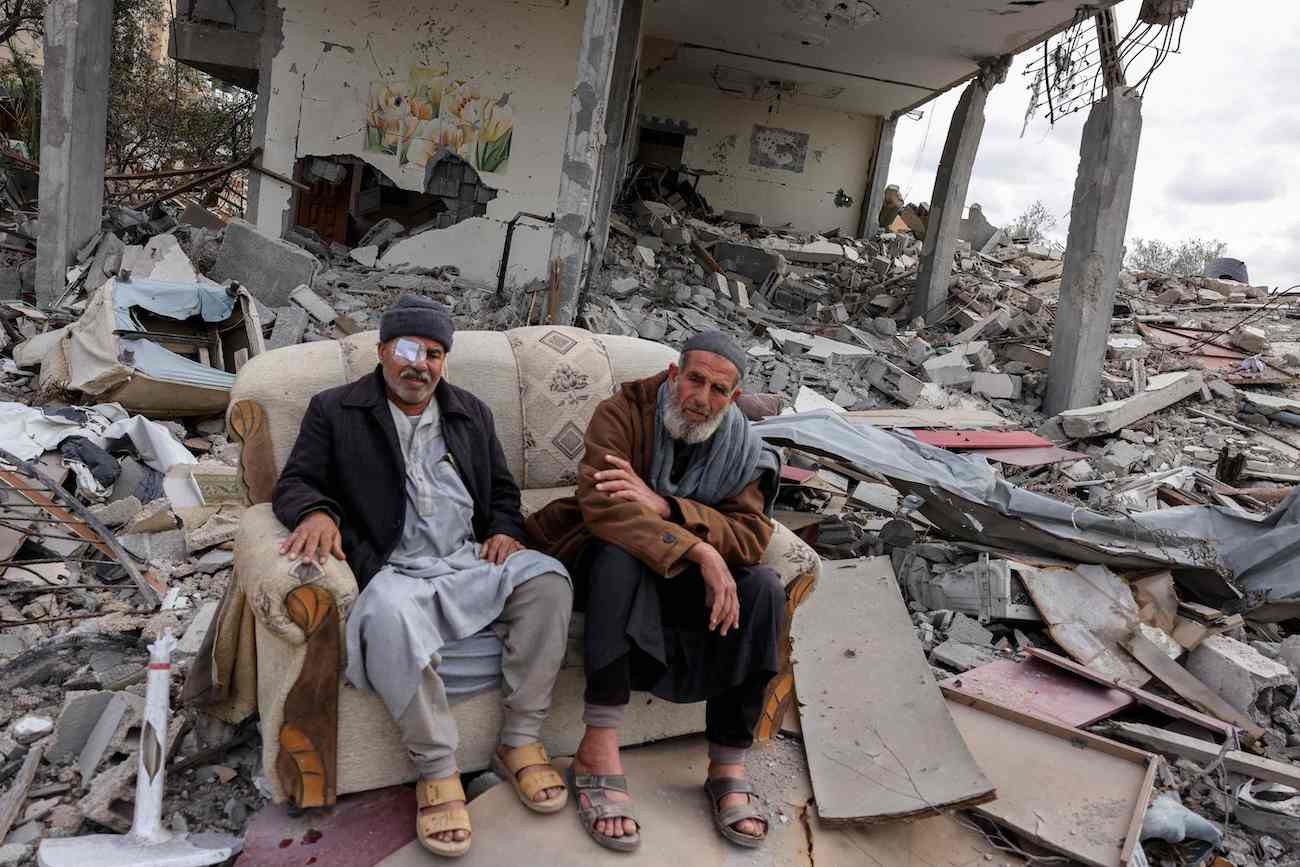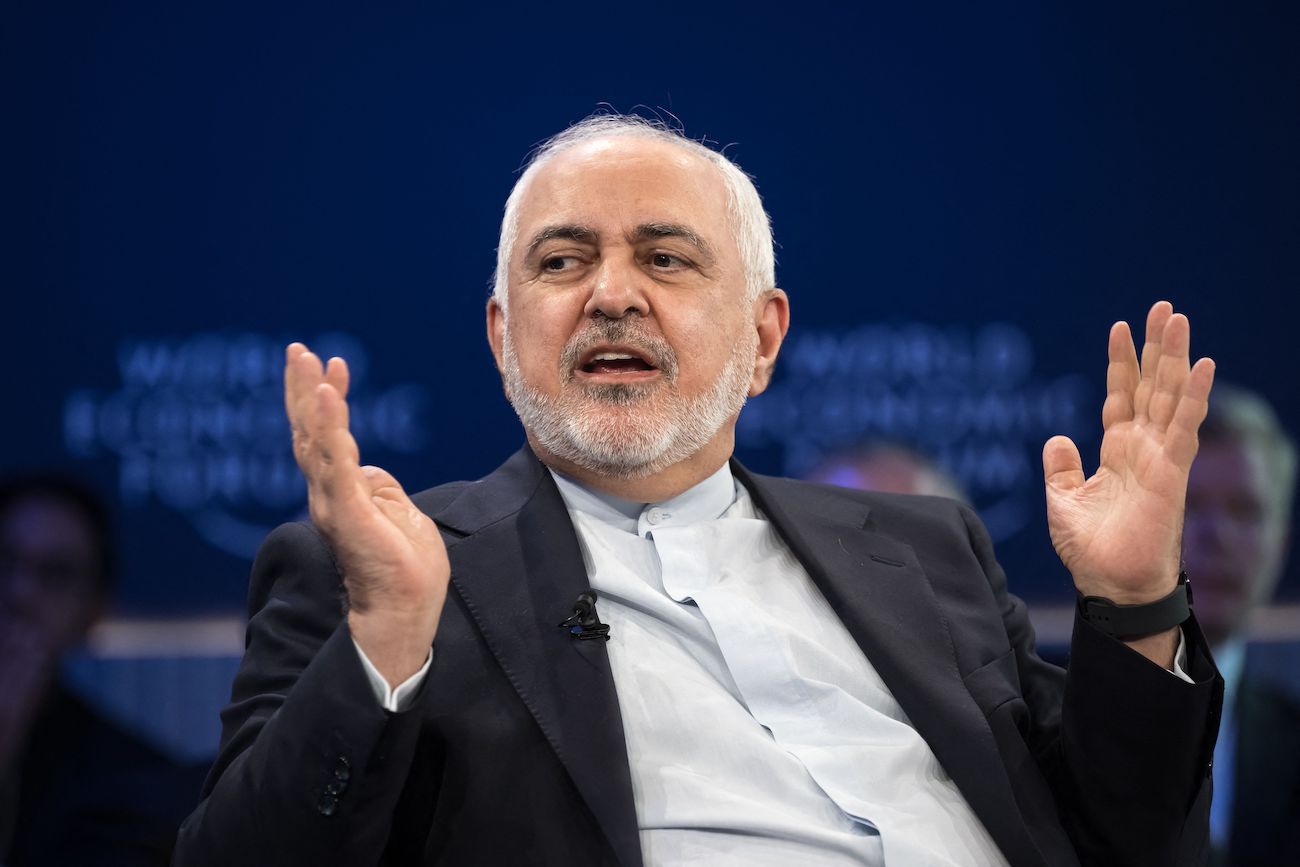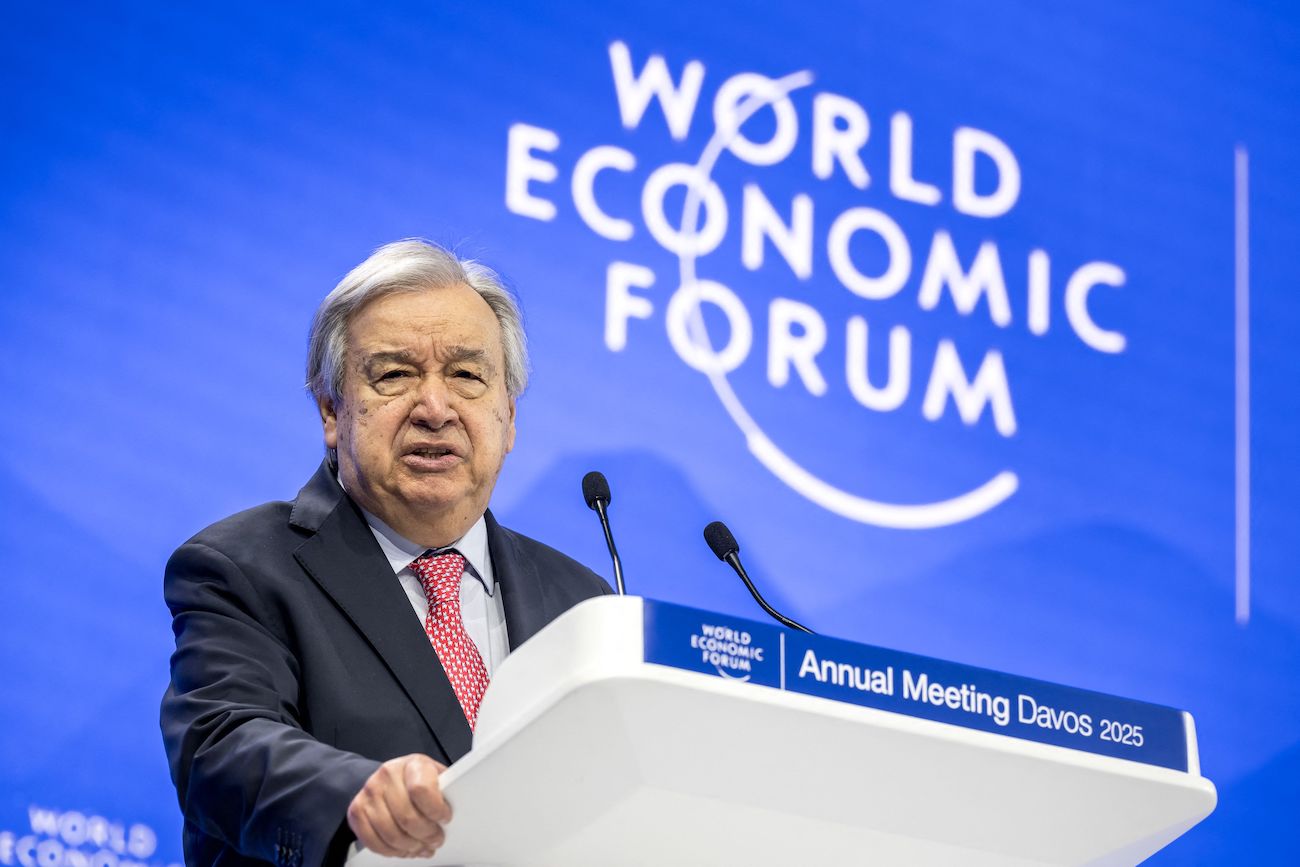LONDON: More than a decade of civil war, economic sanctions, regional tensions, and a devastating earthquake have left Syria’s healthcare system in tatters and, according to a top World Health Organization official, forgotten by the international community.
Hanan Balkhy, WHO’s regional director for the Eastern Mediterranean, said last week that almost half of Syria’s health workers had fled the war-torn country. She called for innovative approaches to halt the exodus of Syrian medical staff abroad.
In an interview with the AFP news agency, she said that young doctors needed to be offered better prospects than practicing “fourth-century” medicine amid dire conditions, “where you cauterize people and send them on their merry way.”

An injured man receives emergency treatment at the Samez hospital following bombardment by pro Syrian regime forces in rebel-held northwestern city of Idlib on October 6, 2023. (AFP)
The International Rescue Committee highlighted in a 2021 report that about 70 percent of the medical workforce had fled the country, leaving one doctor for every 10,000 people.
Balkhy told AFP that in addition to earning extremely low wages, if any at all, Syria’s medical staff faced a severe shortage of resources and equipment, including operating rooms, sterilization units, and medications.
However, according to Dr. Zaher Sahloul, a Syrian-American critical care specialist and president of the medical NGO MedGlobal, every young Syrian physician he knows either plans to or dreams of leaving Syria and pursuing opportunities in other countries, “especially Germany, other European nations, or the US.”
“The flight is across the board and not related to war or conflict,” he told Arab News.
According to data released by the German Medical Association earlier this year, 6,120 Syrian doctors work in Germany without holding a German passport. These doctors account for 10 percent of the EU country’s foreign medical staff.
INNUMBERS
• 70 percent Proportion of Syria’s medical workforce that fled the country, leaving one doctor for every 10,000 people. (IRC, 2021)
• 6,120 Number of Syrian doctors working in Germany, accounting for 10 percent of the country’s foreign medical staff. (GMA, 2024)
• 65 percent Proportion of Syria’s hospitals deemed fully operational, making access to healthcare heavily constrained. (WHO, 2024)
• $80 million Funding needed by the WHO for 2024 to ensure access to health services and prevent further deterioration in Syria.
Balkhy said many young doctors in Syria are learning the German language on the side “so that they can be ready to jump,” which she believes is a significant concern for the region and its population.
But she also believes that finding creative solutions may encourage Syrian doctors to stay or return to their country — a choice she says many would make “willingly” with access to adequate support.

A man stands at the entrance of Adnan Kiwan hospital that was hit during reported airstrikes by pro-regime forces in the town of Kansafrah, in the south of Syria's Idlib province on November 25, 2019. The patients of the hospital were reportedly evacuated shortly before the strike took place. (AFP/File)
Sahloul says the main reasons behind the exodus of medical workers “are the economic collapse, hyperinflation, corruption, the collapse of the healthcare system due to long years of war, the regime’s policies of destroying what is left and pushing away anyone who wants to leave, and the lack of a viable political solution.”
Following a brief visit to the country between May 11 and 16, WHO’s Balkhy described the healthcare situation as “catastrophic,” warning that the number of people in need is “staggering, and pockets of critical vulnerabilities persist in many parts of the country.”
In a statement published on May 18, the WHO official wrote that intensifying tensions in the region, including the Israeli operation in the Gaza Strip and the Iran-Israel shadow war, have exacerbated this catastrophic situation.
The civil war has forced more than 14 million Syrians to flee their homes and seek refuge both within the country and beyond its borders. Among them, more than 7.2 million remain internally displaced, while about 70 percent of the population needs humanitarian assistance, according to UN figures.

Dr. Hanan Balkhy, WHO’s regional director for the Eastern Mediterranean. (Supplied)
Balkhy said in her statement that she was “extremely alarmed” by the increasing malnutrition rates among children under 5 and nursing mothers as a result of rising poverty.
The UN warned last year that 90 percent of Syria’s population lived below the poverty line, with millions facing a reduction in food rations due to a shortfall in funding for aid agencies.
According to the WHO regional director, almost three-quarters of all deaths in Syria are caused by chronic conditions, including cancer, cardiovascular diseases, diabetes, and mental health disorders, many of which are going untreated.
She also noted the number of burn injuries in Syria has been disproportionately high, especially among children, as people, deprived of traditional means of heating and cooking, burn unsuitable materials, such as tires, plastics, and fabrics.

In this picture taken on May 2, 2023, male patients receive treatment at the Haematology and Oncology department run by the Syrian American Medical Society (SAMS) at Idlib Central Hospital in the rebel-held northwestern Syrian city.(AFP/File)
Fumes produced by burning these substances also result in respiratory issues.
With just 65 percent of hospitals and 62 percent of primary healthcare centers fully operational, combined with a severe shortage of essential medicines and medical equipment, access to healthcare is constrained.
Before the war erupted in 2011, Syria’s pharmaceutical industry covered about 90 percent of the national needs of medicines, according to a 2010 paper by academics from the University of Medicine and Pharmacy in Romania.
In 2013, WHO reported that the country’s local drug production plunged after the fighting caused substantial damage to pharmaceutical plants in the governorates of Aleppo and rural Damascus.

A picture taken on February 21, 2018 shows a view through the wall of a destroyed hospital's pharmacy after it was hit in a regime air strike in the rebel-held enclave of Hamouria in Ghouta near Damascus. (AFP/File)
Poverty also creates significant barriers to accessing medical services and affording essential medicines, said Balkhy.
What concerned her most was “the fact that almost half of the health workforce, which forms the backbone of any health system, has left the country.”
An investigation by Arab Reporters for Investigative Journalism last year found that although the exact number of Syrian physicians who left the country remains unknown, the true extent of this exodus is larger than the NGOs and the Syrian government have reported.
“Retaining a skilled health workforce and ensuring sufficient medical supplies in Syria and across the region is a key priority,” said Balkhy.

Members of the Syrian Civil Defense, also known as the White Helmets, carry the body of a woman recovered from the rubble of a building at the site of a reported airstrike on the rebel-held town of Ariha in the northern countryside of Syria's Idlib province early on January 30, 2020. (AFP/File)
She proposed engaging young Syrian physicians on research projects with a pathway to publishing so they can “feel that they’re doing something worthwhile,” in addition to ensuring they “at least have the equipment” to perform operations.
For Sahloul of MedGlobal, fostering a belief in a brighter future is essential to retaining both new and seasoned doctors.
“What will encourage young and old doctors to stay in Syria is believing in a better future — a new leadership that respects its human capital,” he said.
Sahloul said that international and Arab actors need to devote more attention to finding a genuine solution to the Syrian conflict — “one that ensures respect for human rights and dignity, and focuses on rebuilding.”

A man and woman carry malnourished children at a camp for Syrians displaced by conflict near the town of Deir al-Ballut by Syria's border with Turkey in the Afrin region in the northwest of the rebel-held side of the Aleppo province on September 28, 2020. (AFP/File)
He added: “The current Arab normalization with the regime is flawed because it gives no hope for any meaningful change.”
Sahloul said normalization’s priorities, including refugee repatriation, curbing the manufacture of and trade in the amphetamine drug Captagon, and limiting Iran’s influence, “are not the most important priorities to the young graduates and aspiring doctors in Syria.”
Balkhy emphasized that the decline in humanitarian funding for Syria was a “central and troubling concern.”
For instance, Al-Hol camp in Syria’s northeast — home to the wives and children of Daesh militants captured in 2019 — has grappled with many significant challenges since funding shortages forced WHO to halt medical referrals, prompting camp administrators to revoke its access.
Talks with donors in the capital Damascus during her five-day visit revealed that while they acknowledge the extent of gaps and needs, they are hampered by competing regional and global agendas.
Medecins Sans Frontieres warned on April 29 that the severe lack of funding for a vital WHO-funded medical referral system in 11 camps in northeast Syria “will lead to a marked increase in the number of preventable deaths.”
WHO said in March that it required $80 million in funding for the year 2024 to ensure the continuity, quality, and accessibility of health services and infrastructure in Syria, and to prevent a further deterioration of the already precarious situation.

















